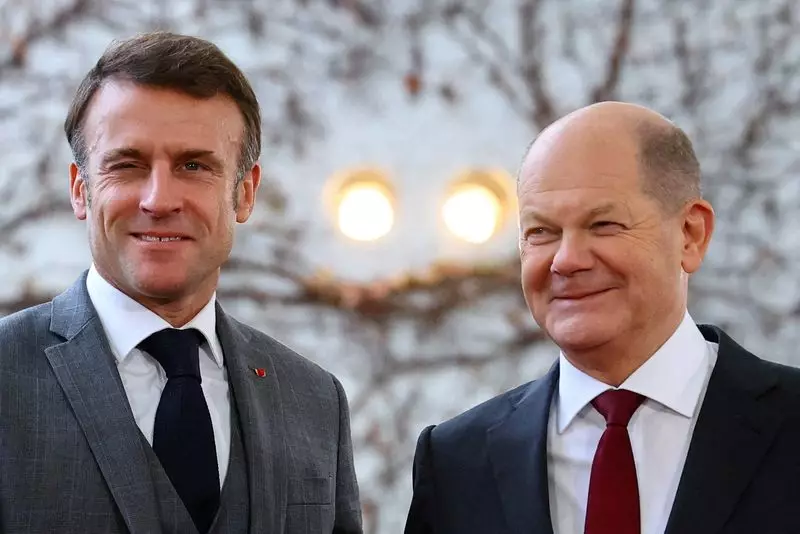French President Emanuel Macron’s upcoming state visit to Germany has sparked interest as the European Union’s two biggest powers strive to demonstrate unity before the EU parliamentary elections. Macron’s trip to Germany, including stops in Berlin, Dresden, and Muenster, highlights the significance of the German-French relationship in shaping EU policies. This visit comes at a critical juncture, with pressing challenges facing Europe, such as the conflict in Ukraine and the potential election of Donald Trump as U.S. president. Despite differing leadership styles between Macron and German Chancellor Olaf Scholz, recent compromises have allowed the two countries to present a more united front on various issues.
While tensions exist in the German-French relationship, navigating difficult topics has led to progress in areas such as fiscal reform and energy policy. The need to expand the EU eastwards has been a point of convergence for both countries, highlighting areas of common interest. However, fundamental gaps remain on key issues, particularly in European defense. The prospect of a Trump victory in the U.S. presidential election poses challenges for European defense cooperation, with France advocating for a more self-reliant Europe while Germany leans towards maintaining strong ties with the U.S. military.
Macron’s visit to Germany carries symbolic significance, signaling a commitment to strengthening the German-French relationship despite underlying tensions. The upcoming cabinet meeting in Meseberg presents an opportunity for both governments to address divisive issues such as defense and competitiveness. Finding common ground on these issues is crucial, especially in light of the upcoming EU parliamentary elections and the rise of far-right parties. The need for cohesive EU decision-making in the face of potential political shifts underscores the importance of Macron and Scholz’s discussions.
Amidst uncertainty in the geopolitical landscape, the EU faces a window of opportunity to advance ambitious plans between the parliamentary elections and the establishment of new leadership. This period of transition presents a chance to address pressing issues and set the agenda for the next five years. With the looming specter of a potential Trump presidency, the EU must seize this moment to push forward with strategic initiatives that can withstand political challenges. Macron’s visit to Germany serves as a platform for dialogue and cooperation in navigating the complex dynamics of EU politics.
While the German-French relationship faces challenges and disagreements, there is also room for cooperation and compromise on key issues affecting the EU. Macron’s visit to Germany underscores the importance of maintaining strong ties between the two countries, especially in the face of external pressures and internal divisions. By addressing shared concerns and working towards common goals, Germany and France can reinforce their partnership and contribute to a more cohesive and resilient European Union.

